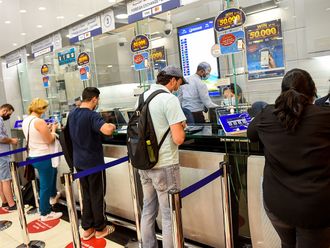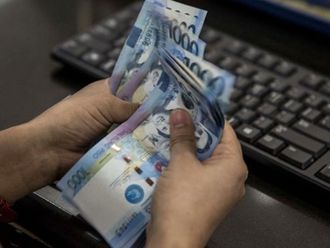Manila: Efforts in the country to do away with non-biodegradable packaging took a leap forward recently after Makati Mayor Erwin Binay signed guidelines for the phase-out of plastics by businesses in the city.
Binay signed recently implementing Rules and Regulations of Sections 21, 22 and 23 of Makati City Ordinance No 2003-095 which gives business establishments in the city a one-year period to dispose of their inventory of plastic and styrofoam containers while at the same time promoting the use of recyclable substitutes.
Clogging waterways
According to Binay, indiscriminate dumping of plastics and styrofoams, besides being unsanitary, also hurt the environment since they would clog the drainage systems and waterways.
"EO 0009 is a milestone issuance that strengthens our fight against global warming," Binay added.
"This would greatly reduce the non-biodegradable materials and solid wastes that add up to the pollution of Makati City and clog our waterways that results to flooding in some areas in the city," he concluded.
Makati City, is one of, if not, the most developed urban centres in the country. It is the business address of the biggest establishments in the Philippines and is the leading urban centre.
However, despite this, Makati, like most other urban centres in the country suffers from flooding whenever there are heavy rains such as when there are typhoons.
Much of the blame for the flooding has been pinned on storm drains and waterways clogged by non-biodegradable plastic materials.
The EO covers all supermarkets, public markets, shopping malls/department stores, grocery stores, convenience stores, restaurants, fast food chains, canteens, eateries and similar establishments.
They are given one year to dispose all of their remaining stocks of non-biodegradable thin-film, single-use and carry-out plastic bags and styrofoams (polysterene) used as dining utensils, food, drinks and beverages containers, and other similar materials.
Likewise, environment-friendly or eco-friendly bags such as jute, fabric/cloth, paper bags and basket/woven bags made from pandan, coconut tree or buri/buli leaves, etc. may be provided by the management of such establishment for free or for a fee.
Individual violators of the order will be penalised in accordance with a fee of P1,000 (Dh85) or imprisonment of not less than five days but not more than 30 days.
Penalty
Business establishments will be made to pay a fee amounting to P5,000 (Dh425) or imprisonment (of owner) of not less than 30 days but not more than one year or both at court's discretion.
Makati City is one among the several Metro Manila cities to implement such an ordinance phasing out the use of plastics.
The cities of Las Pinas, ang Quezon City had earlier implemented their respective city ordinances banning the use of plastic packaging materials, following the lead of Muntinlupa City.
Muntinlupa City was the first city in the Philippines to pass local law against the use of plastics following its experience during typhoon Ketsana and Parma in 2009 where large areas of the city suffered from heavy flooding.












